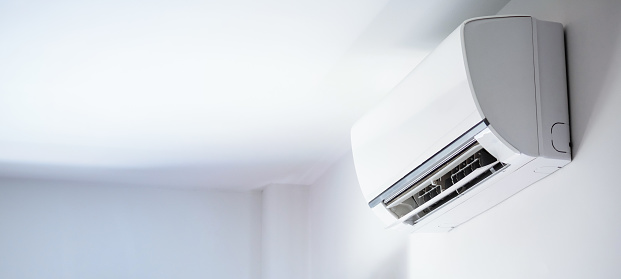
Medical waste management is a critical aspect of healthcare that ensures the safety of both the environment and public health. Proper handling, disposal, and treatment of medical waste are essential to prevent contamination and the spread of infectious diseases. This guide will explore the different types of medical waste, current best practices for effective management, and the regulations that govern the disposal of such waste in healthcare settings. By understanding these principles, healthcare providers can maintain a safe working environment while minimising their environmental impact.
Types of Medical Waste
Clinical waste can be categorised into several types, each requiring specific management strategies:
Infectious Waste
This includes waste contaminated with blood, bodily fluids, or other potentially infectious materials, such as swabs, bandages, and disposable medical supplies.
Sharps Waste
Sharps include any device or object used to puncture or lacerate the skin, such as needles, scalpels, broken glass, and syringes. Proper disposal is crucial as improper handling can lead to injury and infections.
Pharmaceutical Waste
This encompasses expired, unused, or contaminated drugs and vaccines. Special consideration is needed to prevent pollution and drug diversion.
Chemical Waste
Includes solvents and reagents used for laboratory preparations, disinfectants, and heavy metals contained in medical devices (like mercury in thermometers).
Radioactive Waste
Such waste includes contaminated materials from cancer therapies or medical equipment that uses radioactive isotopes.
Best Practices for Medical Waste Management
Effective management of medical waste involves several best practices:
Segregation
Waste must be segregated at the point of generation according to its type. This reduces risks of contamination and simplifies the disposal process.
Proper Containment
Different types of waste require different containers. For example, sharps should be placed in puncture-resistant containers, while infectious waste needs leak-proof, labelled bags.
Labeling and Documentation
Clear labelling and accurate documentation ensure that waste is handled appropriately throughout its disposal process.
Training for Staff
Regular training sessions for all healthcare staff on proper waste handling and disposal procedures are essential for maintaining safety standards.
Contracting with Certified Disposal Companies
Professional waste disposal companies that comply with all regulatory standards can help healthcare facilities manage their waste efficiently and safely.
Regulations Governing Medical Waste Disposal
Compliance with regulations is fundamental to effective medical waste management. In Australia, medical waste is regulated at both the federal and state levels, ensuring comprehensive oversight:
Federal Regulations
At the national level, the Environmental Protection Authority (EPA) outlines general guidelines for the management of hazardous waste, including medical waste. These regulations focus on the transportation and disposal methods that minimise environmental impact.
State and Territory Regulations
Each state and territory may have additional rules that are more specific or stringent. For example, some regions require certain types of medical waste to be treated before disposal, while others focus on the licensing of facilities that handle such waste.
Local Compliance
Healthcare facilities must also adhere to local council regulations, which can involve specific waste management practices and disposal methods tailored to local environmental needs.
Modern Techniques and Technologies in Medical Waste Disposal
Advancements in technology have significantly improved the efficiency and safety of medical waste disposal:
- Autoclaving: This method uses steam under high pressure to sterilise waste, making it safe to dispose of as general waste.
- Chemical Disinfection: Suitable for liquid waste, this method neutralises contaminants before disposal.
- Microwave Treatment: Uses microwaves to heat waste, effectively killing pathogens in infectious waste.
- Incineration: High-temperature burning of waste not only reduces its volume but also destroys pathogens. However, it must be controlled to prevent air pollution.
- Plasma Pyrolysis: A newer technology that uses plasma, a highly ionised or electrically charged gas, to decompose organic material in waste without combustion, significantly reducing the release of pollutants.
Challenges and Future Directions in Medical Waste Management
Managing medical waste continues to face challenges such as:
- Increasing Waste Volumes: As healthcare services expand, so does the amount of waste generated, posing significant management challenges.
- Environmental Impact: There is a constant need to balance effective waste disposal with environmental sustainability.
- Regulatory Compliance: Keeping up with changing regulations requires continuous updates to policies and practices.
Future trends might focus on:
- Sustainable Practices: Developing more eco-friendly disposal methods that reduce environmental impact, such as increased recycling and reuse of medical materials.
- Regulation Updates: Enhanced regulations that incorporate new technologies and changing healthcare practices.
- Public Awareness: Educating healthcare providers and the public about the importance of proper waste disposal and its impact on health and the environment.
Conclusion
Effective medical waste management is crucial for maintaining public health and environmental safety. By understanding the different types of medical waste, adhering to best practices, and complying with stringent regulations, healthcare facilities can mitigate the risks associated with improper disposal. The advancements in disposal technology and the ongoing development of regulations demonstrate a commitment to improving the medical waste management system. As we move forward, the focus must remain on innovative, sustainable practices that address the growing challenges of waste management in the healthcare sector. Emphasising education and awareness will also play a key role in ensuring that medical waste is handled responsibly across all levels of healthcare provision.





